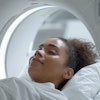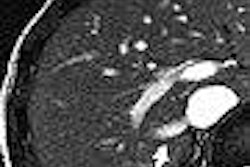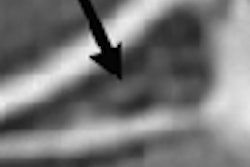Frank Sinatra crooned that he had a few; British Prime Minister Benjamin Disraeli declared it to be an attribute of old age. Filmmaker Woody Allen used it to fuel his angst.
For most of us regret is all too familiar, an emotion that arises when we make a choice that turns out to be disadvantageous. What is the specific brain change that takes place when we experience regret? French and British researchers used functional MRI (fMRI) to find an answer.
Previous studies have indicated that the orbitofrontal cortex (OFC) is involved in the expression of this cognitively based emotion. Giorgio Coricelli, Ph.D., and colleagues set out to "define precisely the conditions under which the OFC and related areas are engaged by the experience and anticipation of regret," they wrote in the Nature Neuroscience online (August 7, 2005).
Coricelli's group is from the Institut des Sciences Cognitives in Bron, France, and the Wellcome Department of Imaging Neuroscience in London.
For the study, 15 healthy volunteers underwent fMRI during a gambling task. This task involved two different probabilities of financial gain or loss. The subjects were either given partial feedback, in which only the outcome of the selected gamble was shown, or complete feedback in which the outcome of both selected and unselected gambles were revealed (in other words, they saw what they had missed out on). Finally, the investigators compared the subjects' responses when they had a choice ("choose condition") versus when they had no choice ("follow condition").
Subjects were scanned on a 3-tesla MRI (Allegra, Siemens Medical Solutions, Erlangen, Germany). The sequences included T2-weighted echoplanar images with blood oxygenation level-dependent (BOLD) contrast. Image pre- and postprocessing was done with statistical parametric mapping software (SPM2, Wellcome Department of Cognitive Neurology, University College London, U.K).
"During fMRI, the processing of outcome was modulated as function of whether outcome (wins or losses) was evaluated in the context of a 'choose' or 'follow' trial," they explained.
The results showed that the activity in the medial OFC, extending from the subgenal cingulate, correlated with a high degree of regret as did activity in the anterior hippocampus.
In addition, the anterior ventral striatum was activated during wins and deactivated during losses, but only in the "choose condition" trials. This part of the brain processed the mismatch between the predicted and actual outcomes of taking a gamble.
Across both win and loss trials, the researchers found that the outcome differences correlated with enhanced activity within the anterior cingulated, putamen, inferior parietal lobule, and lateral OFC. In comparison, disappointment leads to activity in other parts of the brain including the dorsal brain stem.
This is an important distinction to make, the authors pointed out, as regret involves a feeling of personal responsibility while disappointment does not. More notably, feelings of regret can be diminished, or even avoided, by learning from previous mistakes, or minimizing the differences in outcome between the chosen gamble and the rejected one.
"The experience of regret has a powerful influence on subsequent behavioral choice, leading to a pattern of behavior that can be characterized as regret-averse," they wrote. "Our data would suggest that cognitive context, exemplified by counterfactual thinking in related to states of the world, exerts a modulatory influence on OFC activation."
By Shalmali Pal
AuntMinnie.com staff writer
August 9, 2005
"Regrets, I've had a few." -- Frank Sinatra, "My Way"
"Youth is a blunder; manhood a struggle; old age a regret." -- Benjamin Disraeli
"My only regret in life is that I am not someone else." -- Woody Allen
Related Reading
A good night's sleep may be good for memory, June 15, 2005
Racial profiling: fMRI links brain activity and black-white bias, May 27, 2005
Teenage wasteland? fMRI study shows adolescent brain is short on motivation, March 19, 2004
Copyright © 2005 AuntMinnie.com




















